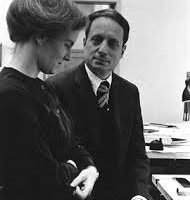“Some kids got Disney, I got the Holocaust.”
How does one generation, and then another, convey a painful legacy to their children? It isn’t easy. Four female authors of books for young readers do an outstanding job this season.
Lauren Yanofsky Hates the Holocaust by Canadian author Leanne Lieberman is narrated by a 14-year-old girl whose grandmother lost immediate family members to the Nazis and rarely talks about this, whose father is a Holocaust scholar, and whose mother won’t give up trying to persuade her to join the local Jewish youth group. Lauren decides she’s had enough (complaining that “Some kids got Disney, I got the Holocaust.”) and makes up her mind that she’s no longer going to be Jewish. It turns out this is easier said than done.
The poignant and arresting Greenhorn, by Anna Olswanger, with illustrations by Miriam Nerlove, is based on a true story. Set in Brooklyn in 1946, the sixth-grade boys studying at a residential Orthodox yeshiva are asked to welcome recently orphaned new clasmates just arrived from Europe. One traumatized boy who is unable to let go of his past quickly is received with behaviors ranging from warm and sympathetic to puzzled and curious, to shockingly hostile and bullying.
In Zebra Forest by Adina Rishe Gewirtz, spunky courageous 11-year-old Annie was taught about lying — “As with other things, if you are going to do it, do it well” — by her eccentric and loving but often depressed grandmother, who is raising her and her younger brother. (The lying helps keep the visiting social worker at bay.) This suspenseful novel — which has nothing explicitly Jewish in it — features another young protagonist trying to come to terms with an inheritance of violence and loss. In this case the arena for the violence and the struggle for survival is domestic and intrafamilial.
Finally, Blue Thread by Ruth Tenzer Feldman also depicts generational tensions, with a fantasy time-travel element connecting 16-year-old Miriam, the rebellious daughter of a Jewish family in Portland, Oregon, during the 1912 suffrage movement, with the biblical daughters of Zelophehad petitioning the tribal hierarchy to be able to be inheritors in their family which has no sons. Like the other books here, this one is about inheritance, albeit about a legacy more cheerful and less fearful.
Naomi Danis is Lilith’s managing editor.




